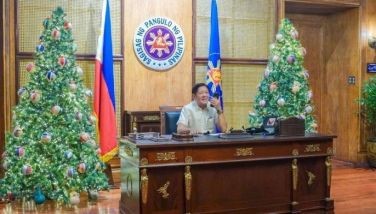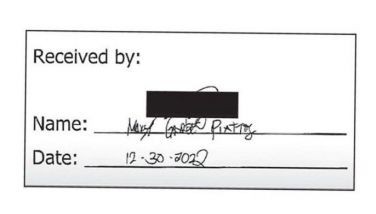Dengue detection to save state hospitals billions
September 29, 2006 | 12:00am
State hospitals would save billions in medical costs through the early detection of dengue, a recent study said.
"The estimated cost of morbidity from dengue, especially of unconfirmed cases, runs up to a hefty sum and may be reduced to half by simply confirming the diagnosis," said Fely Marilyn Lorenzo, a UP professor who co-authored the study entitled "Burden of Disease and Economic Impact of Dengue."
Lorenzo said the government is spending some P367 billion for unconfirmed cases of dengue while the cost of diagnosed cases only amounts to P178 billion.
"The savings can be used for better surveillance," she said.
Expenses for an unconfirmed dengue case are estimated to reach P59,000 while confirmed cases would cost only P28,000.
The study also revealed that 81 percent of dengue cases in the country are not reported. There were also logical inconsistencies noted in reports from various sources of health data.
Lorenzo’s study reviewed results of the National Epidemic Sentinel Surveillance System (NESSS) from 248 sentinel hospitals, data from the Field Health Surveillance Information System (FHIS), both by the Department of Health’s National Epidemiology Center (NEC).
Data were also culled from the serologic confirmatory test done by the St. Luke’s Medical Center in Quezon City on blood specimens from 4,367 suspected dengue cases and various documents pertinent to the dengue prevention and control program of local government units (LGUs).
FHIS reported a total of 19,067 cases in 2004 while NESSS reported 22, 828 hospitalized cases.
"Logically, the number of cases should be more than the hospitalized cases," the study observed. But most of the cases were clinically diagnosed without the benefit of confirmatory tests.
NEC director Dr. Eric Tayag earlier said this is not the reason why dengue cases are lower this year.
"The estimated cost of morbidity from dengue, especially of unconfirmed cases, runs up to a hefty sum and may be reduced to half by simply confirming the diagnosis," said Fely Marilyn Lorenzo, a UP professor who co-authored the study entitled "Burden of Disease and Economic Impact of Dengue."
Lorenzo said the government is spending some P367 billion for unconfirmed cases of dengue while the cost of diagnosed cases only amounts to P178 billion.
"The savings can be used for better surveillance," she said.
Expenses for an unconfirmed dengue case are estimated to reach P59,000 while confirmed cases would cost only P28,000.
The study also revealed that 81 percent of dengue cases in the country are not reported. There were also logical inconsistencies noted in reports from various sources of health data.
Lorenzo’s study reviewed results of the National Epidemic Sentinel Surveillance System (NESSS) from 248 sentinel hospitals, data from the Field Health Surveillance Information System (FHIS), both by the Department of Health’s National Epidemiology Center (NEC).
Data were also culled from the serologic confirmatory test done by the St. Luke’s Medical Center in Quezon City on blood specimens from 4,367 suspected dengue cases and various documents pertinent to the dengue prevention and control program of local government units (LGUs).
FHIS reported a total of 19,067 cases in 2004 while NESSS reported 22, 828 hospitalized cases.
"Logically, the number of cases should be more than the hospitalized cases," the study observed. But most of the cases were clinically diagnosed without the benefit of confirmatory tests.
NEC director Dr. Eric Tayag earlier said this is not the reason why dengue cases are lower this year.
BrandSpace Articles
<
>
- Latest
- Trending
Trending
Latest
Trending
Latest
Recommended
November 18, 2024 - 12:00am
November 16, 2024 - 12:00am
November 15, 2024 - 12:00am





























